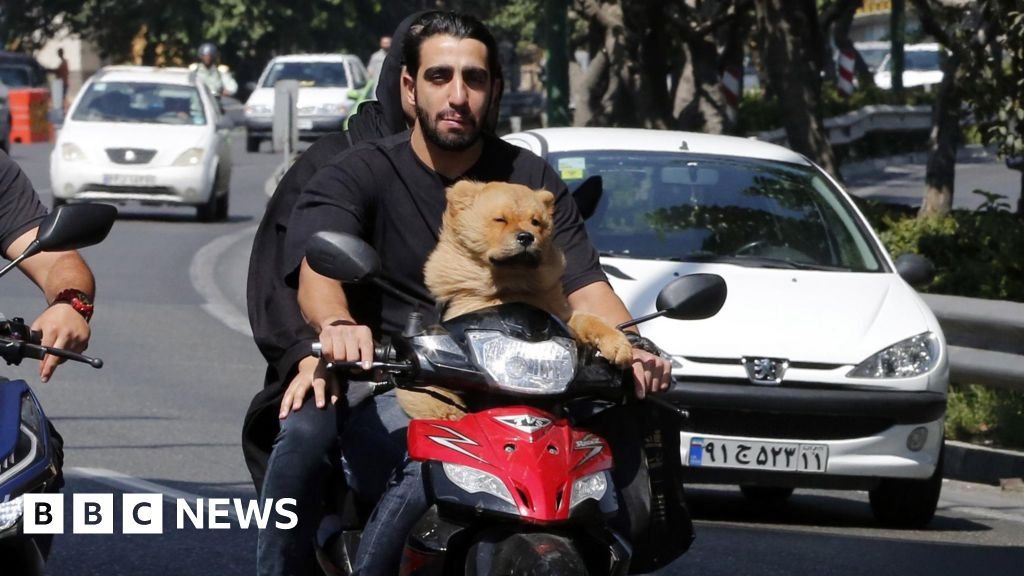Iranian officials have expanded a ban on dog walking to a swathe of cities across the country, citing public order and health and safety concerns.
The ban – which mirrors a 2019 police order that barred dog walking in the capital, Tehran – has been extended to at least 18 other cities in the past week. Transporting dogs in vehicles has also been outlawed.
Dog ownership has been frowned upon in Iran since the 1979 Islamic Revolution, with dogs viewed as “unclean” by authorities and a legacy of Western cultural influence.
But despite efforts to discourage it, dog ownership is rising, particularly among young people, and it is viewed as a form of rebellion against the restrictive Iranian regime.
Cities including Isfahan and Kerman have introduced bans in recent days, according to news agency AFP.
An official from the western city of Ilam, where a ban was implemented on Sunday, said “legal action” would be taken against people who violated the new rules, according to local media.
However, enforcing restrictions in the past has been patchy, while many dog owners continue to walk their dogs in public in Tehran and other parts of Iran.
There is no national law that outright bans dog ownership, but prosecutors often issue local restrictions that are enforced by police.
“Dog walking is a threat to public health, peace and comfort,” Abbas Najafi, prosecutor of the western city of Hamedan, told state newspaper Iran.
Owners have sometimes been arrested and dogs confiscated for being walked in public.
Many have taken to walking their dogs in secluded areas at night or driving them around to evade detection.
Politicians in the Islamic regime regard pet ownership as un-Islamic. Many religious scholars view petting dogs or coming into contact with their saliva as “najis” or ritually impure.
Iran’s supreme leader Ayatollah Ali Khamenei has previously described dog ownership – other than for the purposes of herding, hunting and security – as “reprehensible”.
In 2021, 75 lawmakers condemned dog ownership as a “destructive social problem” that could “gradually change the Iranian and Islamic way of life”.
Iran’s Ministry of Culture and Islamic Guidance banned advertisements for pets or pet-related products in 2010 – and in 2014 there was a drive in parliament to fine and even flog dog-walkers, though the bill did not pass.
Following the recent crackdown, critics argue the police should focus on public safety at a time of growing concern over violent crime, rather than targeting dog owners and restricting personal freedoms.
Dog ownership, defying Iran’s mandatory hijab laws, attending underground parties and drinking alcohol have long been forms of quiet rebellion against Iran’s theocratic regime.




